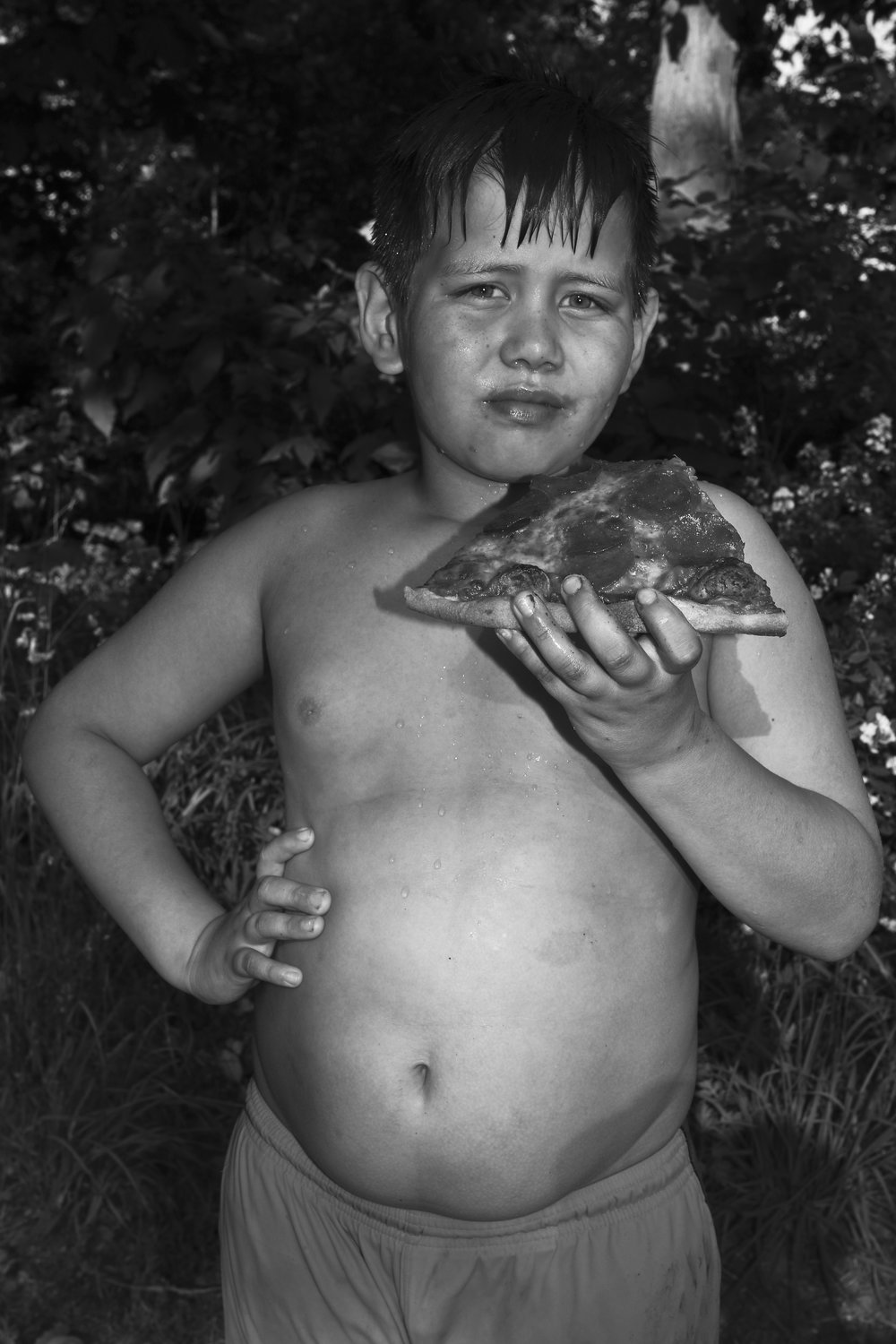Capturing love and loss on the streets of Poughkeepsie
- Text by Caleb Stein
- Photography by Caleb Stein

There’s a widespread conception that Poughkeepsie is a dangerous, inaccessible place – but after coming to the city to study, I’ve quite quickly realised that this isn’t the case. I decided to work on my latest photo series, Down By The Hudson, because I wanted to learn more about Poughkeepsie and the people living in it. This project is about opening up, without judgment, and trying to better understand where I live.
I’m learning about Poughkeepsie’s history, how it’s changed over the years. Most people say the same thing – that the city has been on a downward track for quite some time. They tell me how the East-West Arterial road has literally cut neighbourhoods in half. Then IBM downsized, and the local economy took a hit. Then Route 9 and the Galleria Mall appeared with their corporate stores, which, in turn, meant that a lot of local businesses disappeared.


That said, there are people who enjoy Poughkeepsie – they mention the little things that make it worthwhile, like Kennedy Fried Chicken, the Hudson River, the historic architecture. A lot of these people love the fact that when they walk outside they know everyone; Poughkeepsie is more a village than a small city to those who have always lived in it.
I’ve also seen tragedy on a level I’ve never before experienced. Nikki, a woman who is featured in a lot of the pictures in this series, came from a home where her mother was a drug addict. She hasn’t seen her family in years, including her daughter, and spends most of her time doing drugs or trying to figure out how to get them. She’s been to jail – where she got clean and put on some healthy weight – but when she came out it only took two weeks for her to start taking the drugs again. She’s told me that prostitution and drug addiction have become a vicious cycle for her – she does sex work to buy drugs but she can’t do the sex work without being on drugs.


Another woman, Virginia, has been addicted to heroin for decades. Her entire family has died of overdoses. She describes herself as a hippy and a wild child rolled up into one. When I first met her she was telling me about how she goes down to Malcolm X Park, by the creek, and makes rock pools by gathering rocks and directing the stream into a closed-off area. I asked her if she could show me and if I could take her picture by the rockpool; I wanted to take a picture of her near something she loves. We walked over there together and when we arrived a couple told her that her youngest son, Jimmy, had just died of an overdose. She broke down and cried.
I feel that photographs can hit people in the guts in a way that very few words can. Yes, photographs can be appropriated, manipulated, and used for propaganda. It’s happened before and, unfortunately, it’ll happen again. But, if made honestly, and, in the right hands, with the right context, photographs can show the reality of the world we live in – and I’m not talking about photojournalism or that type of photography necessarily. I’m talking about a larger reality, one that shows: this is the world, this is how I see it, it’s tough, but it can still be beautiful, and you should look at it. I think photography can encourage openness. It’s a way of embracing the world. However abstract this may seem, I think this is what makes photography an immensely powerful tool for social change.














See more of Caleb Stein’s work on his official website, or follow him on Instagram.
Enjoyed this article? Like Huck on Facebook or follow us on Twitter.
Latest on Huck

Clubbing is good for your health, according to neuroscientists
We Become One — A new documentary explores the positive effects that dance music and shared musical experiences can have on the human brain.
Written by: Zahra Onsori

In England’s rural north, skateboarding is femme
Zine scene — A new project from visual artist Juliet Klottrup, ‘Skate Like a Lass’, spotlights the FLINTA+ collectives who are redefining what it means to be a skater.
Written by: Zahra Onsori

Donald Trump says that “everything is computer” – does he have a point?
Huck’s March dispatch — As AI creeps increasingly into our daily lives and our attention spans are lost to social media content, newsletter columnist Emma Garland unpicks the US President’s eyebrow-raising turn of phrase at a White House car show.
Written by: Emma Garland

How the ’70s radicalised the landscape of photography
The ’70s Lens — Half a century ago, visionary photographers including Nan Goldin, Joel Meyerowitz and Larry Sultan pushed the envelope of what was possible in image-making, blurring the boundaries between high and low art. A new exhibition revisits the era.
Written by: Miss Rosen

The inner-city riding club serving Newcastle’s youth
Stepney Western — Harry Lawson’s new experimental documentary sets up a Western film in the English North East, by focusing on a stables that also functions as a charity for disadvantaged young people.
Written by: Isaac Muk

The British intimacy of ‘the afters’
Not Going Home — In 1998, photographer Mischa Haller travelled to nightclubs just as their doors were shutting and dancers streamed out onto the streets, capturing the country’s partying youth in the early morning haze.
Written by: Ella Glossop